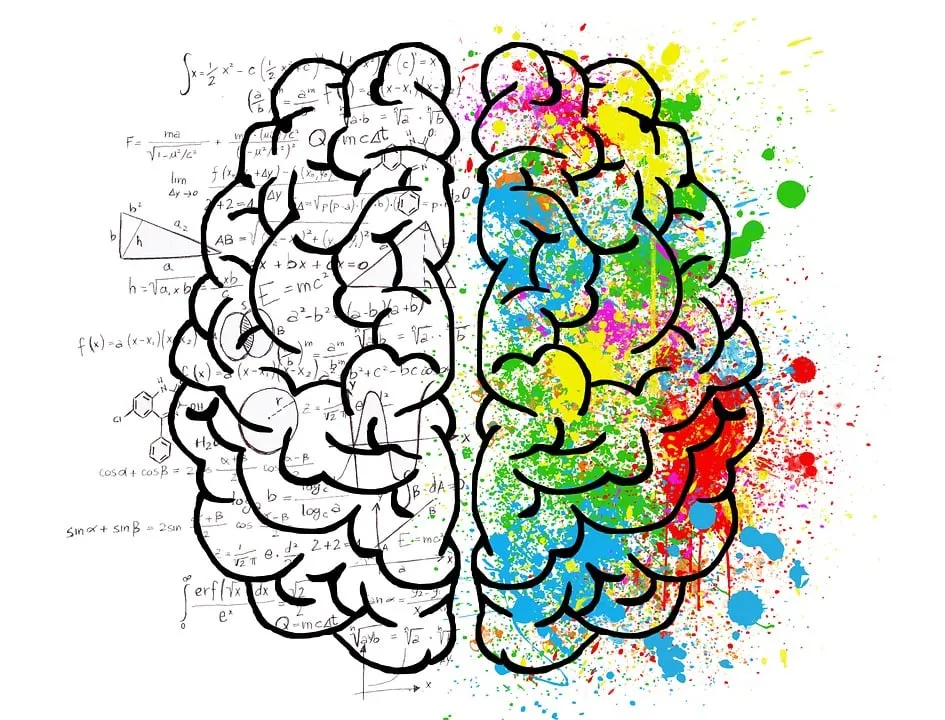Aprovechando el tema de la Iniciativa vigente en la comunidad Humanitas, traigo esta reflexión acerca de un tema también algo profundo. La iniciativa actual en esta comunidad consiste en dejar tu reflexión u opinión en torno a la siguiente frase de Marty Rubin:
“La existencia de las cosas no depende de la existencia de las palabras”
Esta frase nos lleva a reflexionar en muchas cosas, matices, y opiniones al respecto. Las palabras como una manera de denominar a las cosas, o las cosas como objetos independientes de las palabras. Esto también se relaciona un poco con la cultura humana, relacionado al uso de las palabras. Si quieres leer mi publicación en la iniciativa, puedes ir a este enlace.

Esta frase y todo lo que conlleva, también me recuerda a una idea que tenía desde hace un tiempo para desarrollar por medio de una publicación. Esto se relaciona bastante con temas metafísicos y quizás filosóficos, el Todo (cosas) y la fragmentación (palabras).
El Todo podríamos definirlo como lo que existe, la definición total y profunda del universo y de las cosas. Vemos un árbol, y todo lo que hay no es solamente un árbol, sino un conjunto de hojas, ramas, animales que habitan en el árbol o que viven de él, un sistema vivo que interactúa constantemente con el ambiente, toda una infinidad de cosas que suceden en este preciso momento. Pero a pesar de que todo esto sucede, estamos viendo solo “un árbol” contemplando su totalidad, sin entender o ni siquiera llegar a estar consciente de todo lo anterior. Pero de alguna manera, asimilamos todo eso de forma automática, sin racionalizarlo o fragmentarlo.
Lo anterior podría ser una visión un poco más “espiritual”, holística, o algo por el estilo. Pero cuando nos vamos a la Fragmentación, ya estaríamos utilizando nuestro lado lógico, separando las cosas para entenderlas de manera racional. Separamos las hojas, y entendemos su estructura y función biológica. Separamos las ramas y el tronco, y entendemos porqué tienen la forma que tienen, para poder darle estabilidad al árbol. Separamos los animales que viven en él, y entendemos la función del árbol como hábitat o fuente de alimento, su interacción con la fauna. Para lograr esto, existe la ciencia y sus diferentes ramas. Utilizamos las palabras, para darle nombre a las distintas partes.

Las palabras se relacionan con la separación, no se le coloca al mismo nombre a dos cosas distintas (al menos que se dé por casualidad o contextos diferentes). Las cosas simplemente son, el Árbol en sí, contempla todo, sin ningún tipo de separación. Y si nos extendemos, podría decirse que el universo es una sola “cosa”, un solo sistema, todos somos uno.
Por algo el científico que estudia las hojas quizás no tiene las mismas perspectivas que el científico que estudia los animales que habitan en el árbol, y la comunicación entre ellos puede que requiera de algún esfuerzo si quieren trabajar en torno a un objetivo en común. Lo mismo para cualquier trabajo que requiera interdisciplinariedad entre profesiones. Un Ingeniero Civil y un Ingeniero Geólogo pueden literalmente hablar dos idiomas distintos. Dos estudiantes que vieron la misma materia con profesores distintos pueden no entenderse.

Podemos colocar otro ejemplo para entender esto mejor. Un edificio, como un “Todo” es todo un conjunto de sistemas diseñados para que personas puedan utilizar sus espacios. El edificio en sí mismo es un Todo, una sola cosa. Sin embargo, si estudias al edificio desde la Ingeniería, es necesario separar al edificio desde distintos ángulos. Estudias el sistema estructural, sus vigas, columnas y losas, las cuales se diseñan y calculan por separado. Estudias su sistema de tuberías, aguas blancas y residuales, cómo se distribuyen, diámetro de tuberías, etc. Se estudia la arquitectura o distribución de espacios para que las personas se sientan cómodas.
En un proyecto de construcción de un edificio, todas estas cosas por separado deben organizarse en conjunto para que haya armonía. Es por esto que muchos proyectos pueden ser un dolor de cabeza al momento de poner en armonía tantas disciplinas diferentes, ya que debe encontrarse un punto de consenso donde todo sirva a los propósitos del proyecto.
Todo esto ilustra la fragmentación, en el ejemplo de un edificio. Pero como un Todo, el edificio es algo más, algo más que una cosa material, pues sirve a propósitos mayores, personas hacen vida en él.

Por otro lado, es posible estudiar, diseñar y calcular cada viga y columna por separado, pero toda la estructura en su conjunto (vigas, columnas y losas) se comporta como un todo. Existen programas computacionales que hacen cálculos y simulaciones del edificio en su totalidad (SAP2000, ETABS, etc.), pero estos programas nunca lograrán acercarse a lo que el edificio realmente es, quizás se acercarán bastante, y esto depende del buen criterio del humano que utilice el programa.
Al momento de un sismo o cargas inesperadas, el edificio podría comportarse de maneras que ningún humano o programa computacional podría haber previsto. Podemos estudiar muy bien al edificio separando sus partes, pero en su totalidad será algo más, ya que se unen tantas cosas y sistemas separados que es muy difícil o imposible de entender o racionalizar. Creo que ya hemos hablado bastante de ingeniería por el momento.
Pero no hace falta entender nada de esto para vivir en el edificio. Somos capaces de ver el Todo, aunque sea de manera muy superficial, sin racionalizar mucho, pero ha sido necesario el intelecto y el raciocinio para entender mejor al Todo, a través de la ciencia, filosofía, etc.

De igual manera, podemos estudiar cada órgano y parte del cuerpo por separado, pero todo en su conjunto es algo infinitamente más complejo, que tiene vida y consciencia propia, y que la ciencia no ha logrado entender del todo.
La fragmentación puede ser útil para entender mejor las cosas, pero desde un punto de vista religioso o metafísico, la separación también es fuente del mal, aunque depende de cómo resolvamos esa separación para crear unión o conflicto. Creo que en la vida debe haber un equilibrio, utilizar la fragmentación para acercarnos al Todo. Las palabras serían una forma de fragmentación, pero debemos ser capaces de ver más allá de la fragmentación.
Si has llegado hasta aquí, gracias por leer este contenido, espero que te haya hecho reflexionar. Aprovecho para invitar a participar en la iniciativa aún vigente a @ambarvegas @rosahidalgo @alexandermoreno
Deja tus comentarios u opinión al respecto.
English version
Taking advantage of the theme of the Current initiative in the Humanitas community, I bring this reflection on a topic that is also somewhat profound. The current initiative in this community consists of leaving your reflection or opinion about the following sentence by Marty Rubin:
"The existence of things does not depend on the existence of words ".
This phrase leads us to reflect on many things, nuances, and opinions about it. Words as a way of naming things, or things as objects independent of words. This also relates a bit to human culture, related to the use of words. If you want to read my post on the initiative, you can go to this link.

This phrase and all that it entails, also reminds me of an idea I had for some time to develop through a publication. This is quite related to metaphysical and perhaps philosophical themes, the Whole (things) and fragmentation (words).
The Whole could be defined as what exists, the total and deep definition of the universe and things. We see a tree, and all there is is not only a tree, but a set of leaves, branches, animals that inhabit the tree or live on it, a living system that constantly interacts with the environment, an infinity of things that happen at this very moment. But even though all this is happening, we are seeing only "a tree" contemplating its totality, without understanding or even becoming aware of all of the above. But somehow, we assimilate all that automatically, without rationalizing or fragmenting it.
The above might be a slightly more "spiritual" or holistic view, or something like that. But when we go to Fragmentation, we would already be using our logical side, separating things to understand them in a rational way. We separate the leaves, and understand their biological structure and function. We separate the branches and trunk, and understand why they have the shape they have, in order to give stability to the tree. We separate the animals that live in it, and we understand the function of the tree as a habitat or food source, its interaction with the fauna. To achieve this, there is science and its different branches. We use words, to name the different parts.

Words are related to separation, the same name is not given to two different things (unless by chance or in different contexts). Things simply are, the Tree itself, contemplates everything, without any kind of separation. And if we extend, it could be said that the universe is a single "thing", a single system, we are all one.
For some reason, the scientist who studies the leaves may not have the same perspectives as the scientist who studies the animals that live in the tree, and communication between them may require some effort if they want to work towards a common goal. The same is true for any work that requires interdisciplinarity between professions. A Civil Engineer and a Geological Engineer can literally speak two different languages. Two students who saw the same subject with different professors may not understand each other.

We can use another example to understand this better. A building, as a "Whole" is a whole set of systems designed so that people can use its spaces. The building itself is a Whole, a single thing. However, if you study the building from the engineering point of view, it is necessary to separate the building from different angles. You study the structural system, its beams, columns and slabs, which are designed and calculated separately. You study its piping system, white and waste water, how they are distributed, pipe diameters, etc. The architecture or distribution of spaces is studied so that people feel comfortable.
In a building construction project, all these things separately must be organized as a whole so that there is harmony. This is why many projects can be a headache when it comes to bringing so many different disciplines into harmony, as a point of consensus must be found where everything serves the purposes of the project.
All of this illustrates fragmentation, in the example of a building. But as a Whole, the building is something more, something more than a material thing, for it serves greater purposes, people make life in it.

On the other hand, it is possible to study, design and calculate each beam and column separately, but the whole structure as a whole (beams, columns and slabs) behaves as a whole. There are computer programs that make calculations and simulations of the building as a whole (SAP2000, ETABS, etc.), but these programs will never get close to what the building really is, perhaps they will get close enough, and this depends on the good judgment of the human who uses the program.
At the time of an earthquake or unexpected loads, the building could behave in ways that no human or computer program could have predicted. We can study the building very well by separating its parts, but in its totality it will be something else, since so many things and separate systems come together that it is very difficult or impossible to understand or rationalize. I think we have talked enough about engineering for the moment.
But you don't need to understand any of it to live in the building. We are able to see the Whole, albeit in a very superficial way, without rationalizing much, but it has taken intellect and reasoning to understand the Whole better, through science, philosophy, etc.

In the same way, we can study each organ and part of the body separately, but everything as a whole is something infinitely more complex, which has a life and consciousness of its own, and which science has not been able to fully understand.
Fragmentation can be useful to understand things better, but from a religious or metaphysical point of view, separation is also a source of evil, although it depends on how we resolve that separation to create union or conflict. I believe that in life there must be a balance, using fragmentation to bring us closer to the Whole. Words would be a form of fragmentation, but we must be able to see beyond fragmentation.
If you have made it this far, thank you for reading this content, I hope it has made you think. I take this opportunity to invite @ambarvegas @rosahidalgo @alexandermoreno to participate in the still ongoing initiative.
Leave your comments or opinion about it.
Translated to English language with the help of DeepL.com
Fotografías de autoría propia.
Otras redes sociales:
 |
 |
 |
 |
F1 & motorsports: @acontmotor
 |
 |
 |
 |
| ¡Gracias por visitar! — ¡Thanks for visiting!  |